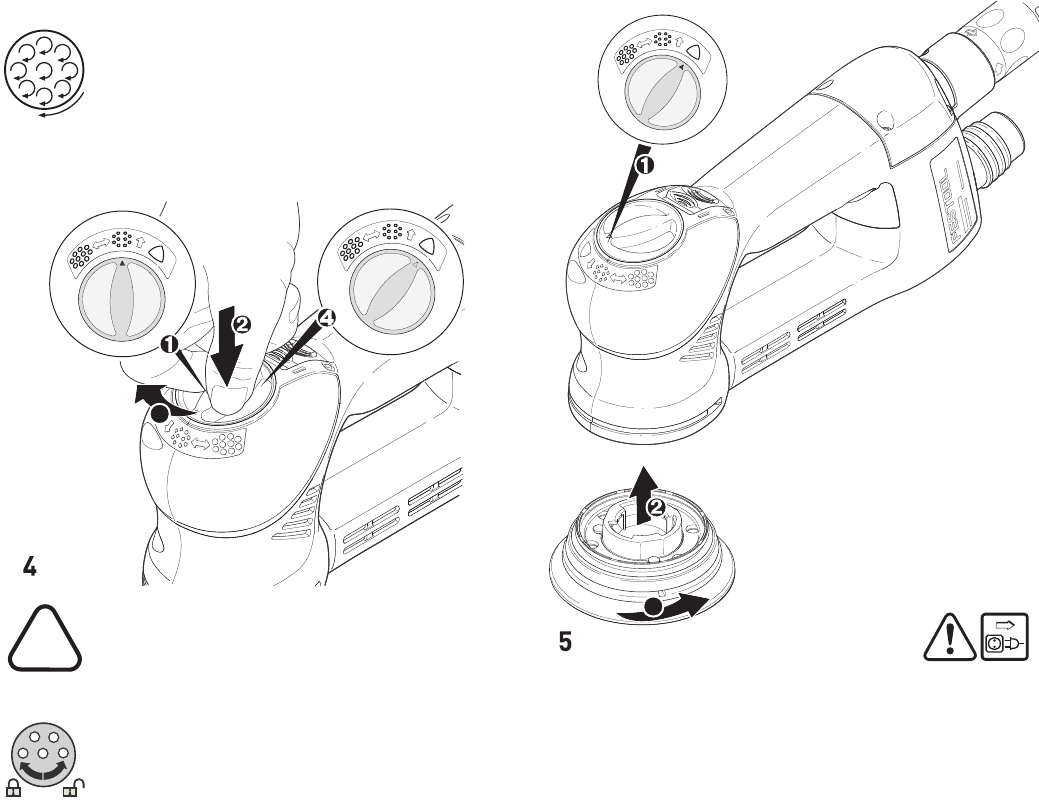
11
Fine sanding - eccentric motion
This position is selected for sanding
with low output for a scratch-free
surface (fine sanding).
Triangular sanding and pad change -
Fig. [4]
This position is used for sanding
with the delta sanding pad and slat
sanding pad; the rotary motion is
blocked.
You can change the sanding pad in
this position.
L
The stop rod
[1-8]
blocks the installation
of the sanding pad in the change-over
switch positions ROTEX rotary motion and
eccentric motion.
Changing sanding/polishing pad -
Fig. [5]
L
Only use sanding and polishing pads that
are suitable for the maximum speed speci-
fied.
Tuned to the surface being processed, the
machine can be equipped with two sanding
pads of different hardnesses.
Hard:
Coarse and fine sanding on surfaces.
Sanding edges.
Soft:
Universal for coarse and fine sanding,
for flat and convex surfaces.
When the interface pad
[1-12]
is fitted on the
sanding pad, strength is reduced = extra soft.
X
Following the sanding pad change, switch
the change-over switch
[1-2]
to the de-
sired sanding motion.
Changing sanding pad - Fig. [6]
The delta sanding pad DSS-GE-STF-RO90
can be used for sanding close to borders, in
corners or on edges. The slat sanding pad
LSS-STF-RO90 can be used for sanding in
narrow gaps, e.g. louvres.
3
3


















